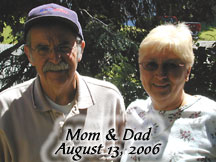This is an interesting little
blurb I came across totally by accident: New Obesity Treatment offers hope for Alzheimer's Patients. (
Screenprint is here--article actually vanished between bookmarking it and writing about it!)
Doctors pushed electrodes deep into a man's brain during surgery in an effort to control his appetite. Once the electrodes were stimulated, vivid memories were unlocked of an experience 30 years earlier.The article doesn't say that they have actually TRIED this on anyone with AD. Personally, I don't think it sounds like it has much promise. #1, AD isn't about "forgetting", it's about physical degeneration of the brain. Dead neurons, plaque, etc. Can an electrode make the neurons grow back? #2, from what I understand, doctors are VERY reluctant to go inside the skulls of living AD patients and muck around with their already screwed-up brains. "Pushing electrodes deeply" sounds messy and imprecise and not like it would work well even on overeating, except in the case maybe of those Prader-Willi people who have no sense of satiety and eat themselves to death.
about me: I've been feeling lonely and cut loose in the 2 or so months since my dad died.
Maybe I miss the drama of having a dying father and all the attention I got when he died. But it seems to me...maybe I'm crazy...that people are avoiding me now that he's died. The same people who couldn't pledge enough support during those two horrible final months have vanished. I finally said something today to one of my best friends about it...she expressed guilt over neglecting me, and said it wasn't because my dad died, but she really didn't give a reason. And that's just how it's been. People I used to see once a week (or more) have dropped to every other week...once a month....can it really be I haven't seen some of these people since my dad's memorial service? Yes, indeed, that is true.
Having never lost a parent before I'm not sure if what I am going through is normal or not. I am sad, true, and often at odd times (usually when I am driving long distances alone, especially if I end up going past the exit for the nursing home), and at those times I might leak a little around around the eyes, but I'm always ALONE when that happens. I don't have crying breakdowns around other people. There's no reason for them to avoid me. Or maybe they just all got their fill of me in October and November. Who knows.











